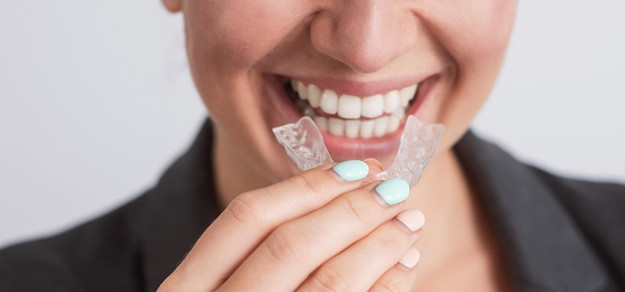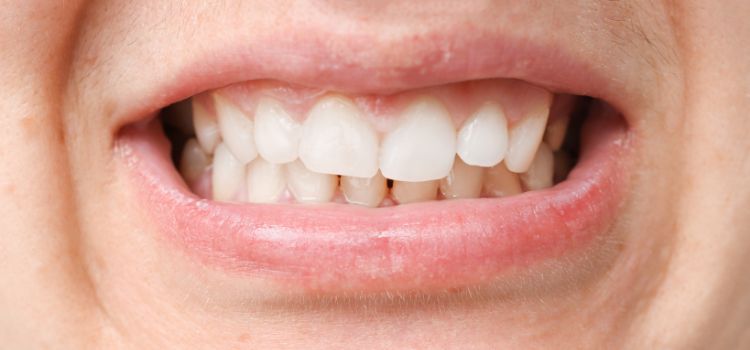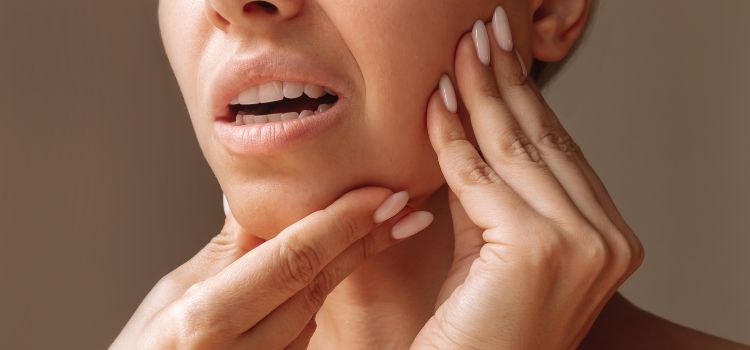Dental Night Guard Side Effects: Most Common Issues
5th Dec 2024

If you grind or clench your teeth at night ( a condition called bruxism), using a dental night guard can help protect your teeth and relieve symptoms like headaches, tooth wear, and jaw tension. By creating a protection barrier between your upper and lower teeth, a night guard reduces pressure on your jaw and prevents teeth from grinding together.
While mouth guards are helpful for many, some users experience minor side effects, especially when starting out. This guide covers the most common issues you might encounter and simple ways to manage them, so you can enjoy the full benefits of your night guard with confidence and comfort.
Possible Night Guard Side Effects and What to Do About Them
Night guards do a great job protecting your teeth from grinding and clenching, but they can sometimes come with a few small side effects, especially when you’re just starting out. Most of these issues are minor and tend to go away as you get used to wearing a night guard or dental appliances.
Source: https://www.nature.com/articles/sj.bdj.2018.869
Here, we’ll look at the most common side effects, why they happen, how they feel, and some tips to make wearing your night guard as comfortable as possible.

Minor Discomfort and Irritation
You might experience a case of minor discomfort and irritation when you first start wearing your night guard, and in many cases, it simply takes some getting used to. You’ve been used to getting deep sleep without a night guard your whole life, so it only makes sense that it will feel strange at first.
- Why it happens: Initial discomfort is common as your mouth adjusts to wearing the guard.
- How it feels: Mild soreness in the gums, teeth, or jaw, along with a general feeling of pressure.
- Duration: Usually short-term, lasting from a few days to two weeks. Persistent discomfort may indicate the need for a professional adjustment.
How to solve: Start by wearing the night guard for shorter periods to help your mouth adjust gradually, then increase the times you wear as you feel more comfortable. Rinsing with warm salt water before and after wearing it can also help provide instant relief to sore areas and keep them away from infections and bacteria.
Poor Fit That Causes Pain, Pressure, or Soreness
When you buy an over the counter night guard or when you use a custom night guard that isn’t fitted properly, you may experience pain. It’s important not to brush off this pain; if your night guard is not fitting you correctly, you want to get it taken care of before it leads to bigger problems such as shifting teeth or jaw misalignment.
- Why it happens: A poorly fitted dental guard appliance can place uneven pressure on certain teeth, affecting bite alignment over time.
- How it feels: Subtle changes in how your teeth align, especially upon waking; may include jaw tension.
- Duration: Often short-term if the fit is corrected promptly, but prolonged use of an ill-fitting dental device could lead to way more lasting issues.
How to solve: Switch to a custom fit night guard if you are currently using one over the counter. If you already have a custom fit night guard that isn’t fitting correctly, have another impression done so you can get a proper fit. Sometimes pain may simply be caused by sharp edges or a thickness that isn’t compatible with your mouth.

Shifting Teeth
When you have a night guard that isn’t properly fitted for your mouth, you can experience teeth shifting.
- Why it happens: If a night guard doesn’t fit your mouth properly, it can put uneven pressure on your teeth, leading to slight shifting. This unwanted stress can affect the alignment of your bite and may even worsen TMJ (temporomandibular joint) issues, causing discomfort in the jaw.
- How it feels: Teeth shifting can feel similar to the soreness experienced after orthodontic adjustments, like with braces. You may notice sensitivity in certain teeth or feel that your bite alignment is slightly off when you wake up.
- Duration: Shifting is a long-term risk if left unaddressed and is not something you should experience with a well-fitting night guard.
How to solve: If you suspect your teeth are shifting, stop using the night guard and contact your dentist. They can adjust or replace the material to ensure a proper fit. A custom-fitted night guard, made specifically for your bite, typically prevents these issues and is often the best option for comfort and alignment.
Related Articles:
- Bite Feels Different After New Night Guard
- Swollen Gums From Mouth Guard
- Can A Night Guard Shift Your Teeth?

Jaw Misalignment or Pain
Although less common than some of the other potential side effects, you might notice that the alignment of your jaw has shifted since you began wearing a night guard.
- Why it happens: A poorly fitted night guard can put uneven pressure on your jaw, potentially shifting its alignment. This misalignment can worsen bruxism (teeth grinding) and may even lead to TMJ (temporomandibular joint) disorders, especially if the back teeth touch the guard more than the front teeth, as explained by maxillofacial prosthodontist Dr. Michael R. Cortese.
- How it feels: Misalignment can cause jaw pain or a sensation that your jaw doesn’t rest comfortably in its natural position. You may also notice increased tension or stiffness, especially in the morning.
- Duration: Jaw pain or misalignment may start as a short-term issue but can become long-term if not addressed promptly.
How to solve: If you notice jaw pain or alignment changes, consult your dentist as soon as possible. They may recommend a different type of night guard (softer or harder) or take new impressions to ensure a better fit. Addressing these issues early can help prevent further discomfort and keep your jaw aligned comfortably.
Related Articles:

- Most Popular
- Hard Outside, Soft Inside
- 2MM Thick
- Moderate / Heavy

- Most Durable
- Hard Materials
- 1.5MM Thick
- Heavy / Severe

- For Day Time Use
- Thin, Barely Visible
- 1MM Thick
- Light / Moderate

- For Clenching
- Flexible & Soft
- 1.5MM Thick
- Light / Moderate
Types of Night Guards
Let’s go over the two main types of nighttime mouthguards: over the counter night guards and custom night guards.
Over the counter night guards are sold as one size fits all or as boil and bite solutions. Both types of over the counter mouth guards might mold to your teeth a little bit, but they won’t be able to give you a true custom fit. Although over the counter night guards might be cheaper and more convenient, they typically use less comfortable materials and are more likely to give you negative side effects.
Custom fit night guards on the other hand are usually more comfortable because they are thinner and are molded to fit your teeth. They are also usually made of a softer material. No two mouths are the same, so it just doesn’t make sense that one mouthguard could work well for every single person.
While side effects are more likely with over the counter night guards, they are also possible with custom fit night guards. Being educated on these potential side effects can help you take action as soon as you notice them.
Related Articles:
FAQS
Can night guards damage teeth?
Night guards are generally safe and designed to protect your teeth from damage caused by grinding and clenching. However, if a night guard doesn’t fit well, it can create uneven pressure, which might lead to discomfort or minor issues over time.
Using a custom-fitted night guard, provided by your dentist or a reliable online seller like Pro Teeth Guard, minimizes these risks and ensures a comfortable, protective fit.
Can a night guard shift your teeth?
A night guard that isn’t properly fitted can sometimes cause slight tooth movement by putting pressure on certain areas. This is why it’s essential to use a guard tailored specifically to your bite. If you notice any changes in alignment or feel that your teeth are shifting, consult your dentist as soon as possible.
The Bottom Line
Night guards are an excellent tool for people who find themselves clenching their jaw or grinding their teeth at night. If you find yourself experiencing any of the negative side effects of wearing a night guard, your best bet is always to consult with your dentist. In most cases, taking a new impression and perfecting the fit of your night guard solves the problem.
At Pro Teeth Guard, we guarantee perfect fit, comfort and a solution, so if you are experiencing any of these problems with one of our night guards, we want to make it right. Your oral health is of the utmost importance to us. If minor discomfort is turning into pain or something just doesn’t feel right, it’s time to reevaluate the fit and style of your night guard.
Resources:
- https://www.health.harvard.edu/blog/unlocking-the-lock-jaw-temporomandibular-joint-tmj-dysfunction-2017022211146
- https://www.healthline.com/health/how-to-stop-grinding-teeth#mouthguards
- https://www.medicalnewstoday.com/articles/190180.php#treatment
- https://www.drcortese.com/night-guards-can-cause-worsen-tmj-pain

- Most Popular
- Hard Outside, Soft Inside
- 2MM Thick
- Moderate / Heavy

- Most Durable
- Hard Materials
- 1.5MM Thick
- Heavy / Severe

- For Day Time Use
- Thin, Barely Visible
- 1MM Thick
- Light / Moderate

- For Clenching
- Flexible & Soft
- 1.5MM Thick
- Light / Moderate
